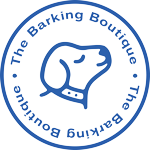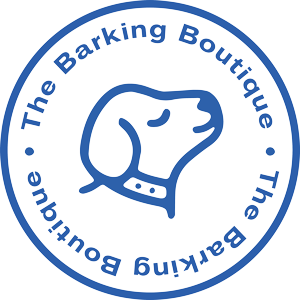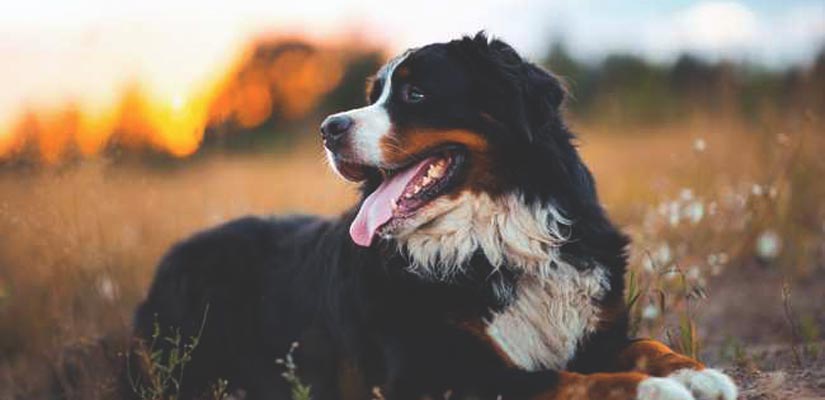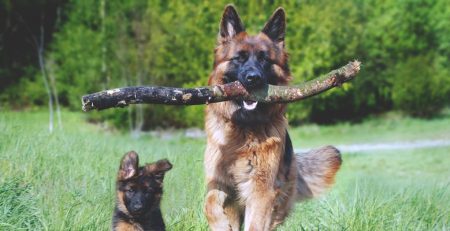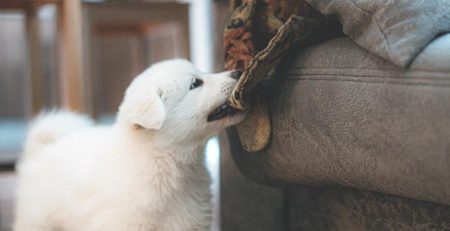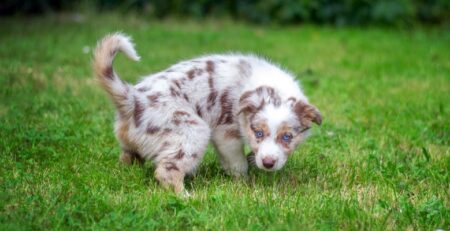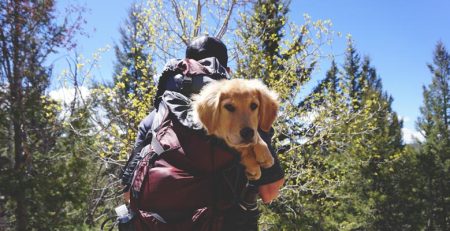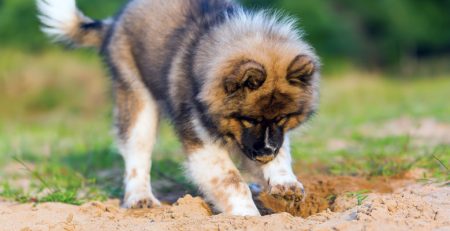About The Bernese Mountain Dog
Deciding to add a four-legged friend into your family is a big decision! You want to make sure the breed you select will be a good fit for your home, lifestyle and personal needs. In your quest to find the perfect pooch, have you been eyeing a Bernese Mountain Dog?
If so, it’s easy to see why! These gentle giants are adorable and even-tempered, with a glossy coat that’s practically begging to be petted. Still, they aren’t for everyone. Today, we’re answering a few common questions about this breed to help you decide if it’s the best one for you. Ready to learn more? Let’s get started!
Are They Good Family Dogs?
Under normal circumstances, Bernese Mountain Dogs can make excellent family pets! Yet, it isn’t enough to just make that general claim. Let’s dig into the reasons why this is true. What are Bernese Mountain Dogs like? More importantly, what makes a Bernese Mountain Dog family pet material?
To start, they’re known for their even-keeled, mild temperament. They’re also incredibly loyal and get along fine with anyone, though they usually find companionship one special human.
At first, your Bernese Mountain Dog might seem a little timid around new people, which is to be expected. Excessive shyness and natural caution are character traits of this breed. However, with the right socialization, they can be trained to do well with strangers and any other pets in your household.
One thing to keep in mind? While they’re large in stature, Bernese Mountain Dogs are “soft” in nature. They can take a little longer than other breeds to mature, both socially and mentally, and should be trained gently without harsh correction.
How Big Do They Get?
What does a Bernese dog look like? For starters, it’s far from a tiny lap dog. A typical male adult Bernese Mountain Dog will weigh between 90 and 120 pounds, while a typical female will weigh between 70 and 100 pounds. Standard males are 26 inches at their withers and females are 25 inches.
In other words, they’re sturdy! This makes them . They’ll continue to get bigger and bigger as they transition from puppyhood to adulthood.
How Long Does It Take for Them to Mature?
Compared to other breeds, Bernese Mountain Dogs are slow to mature. In fact, most dogs in this breed do not reach their full size until they are about two or three years old.
Yet, while the majority of their growth happens during this time period, your dog will continue to flesh out and add bulk well into his middle years. Interestingly enough, Bernese Mountain Dog puppies look gangly, gawky and uncoordinated. It’s not until they’re around six months old, when their puppy fuzz gives way to their adult coat, that they really start to fill out. Their coat will reach its peak fullness after around 12 months.
What Is the Bernese Lifespan Expectancy?
You love your pooch and want him to live forever! For that reason, you might be wondering, “How long do Bernese Mountain Dogs live?”
Most dogs in this breed will live to be around six to eight years old. Why do Bernese Mountain Dogs die so young? One of the answers is that they often have compromised bone structure and limited mobility. Because this breed is so large, it can be overwhelming to manage and maintain all that weight for a long period of time.
However, while this issue can shorten their life expectancy, one of the main reasons why the Bernese lifespan is so short is because this breed is especially prone to canine cancer. One of the major forms, Malignant histiocytosis, is especially aggressive. In addition, they’re also especially susceptible to:
- Hip and elbow dysplasia
- Blood disorders
- Osteoarthritis and arthritis
How Do You Take Care of Them?
Wondering how to care for a Bernese Mountain Dog? Of course, you should always start by finding a reputable veterinarian in your area. Make sure your pup is on a regular immunization schedule and up-to-date on all his shots.
Then, it’s important to establish a strong grooming routine to keep your Bernese Mountain Dog clean, healthy and in great condition. While we’ll dive into later on, remember to brush your dog often and bathe him as needed (usually every few months).
Now, let’s talk food.
How much should a Bernese Mountain Dog puppy eat? What about when they get bigger? The best rule of thumb is to adjust your pup’s portion depending on his age, size and activity level. Most full-grown adult dogs in this breed will eat around three to six cups of high-quality dry food every day. They’ll only need a fraction of that amount when they’re puppies.
Over time, you’ll learn to adjust his food as needed to help him maintain his proper weight. While two meals per day are ideal for an adult dog, younger puppies will need to eat more frequently. The Bernese Mountain Dog feeding guide below can help you understand these cycles.
- Puppies between eight and 12 weeks old: Four bowls of dry food per day
- Puppies between three and six months old: Three meals every day
- Puppies between six months and one year old: Two meals every 24 hours
- First birthday and beyond: One meal per day, or two lighter meals
Do They Shed a Lot?
You might love the look of their shiny, tricolored coat, but do Bernese Mountain Dogs shed?
They do, but it’s manageable if you know what to expect. This breed has a thick, medium-length double coat. It can be straight or even a little wavy. With this much hair, it comes as no surprise that these pups can be shedding machines!
However, the good news is that you don’t need to keep your vacuum out all year round. The typical Bernese Mountain Dog shedding season occurs once in the spring and again in the fall. To minimize the process as much as possible, it’s important to keep your dog properly groomed. Brushing his hair several times a week can help reduce the amount of hair you see around your house. It’s also a great bonding time and can keep his coat clean and tangle-free!
Looking for the best brush for Bernese Mountain Dog coats? Stick with a long-toothed steel comb to get out his undercoat and . You’ll also need a steel pin brush and slicker brush when it’s time to make his coat really shine!
In addition to brushing, you should also bathe your Bernese Mountain Dog every three months or so to maintain his hygiene and make those shedding seasons more tolerable. Remember that coat care is only one part of a comprehensive Bernese Mountain Dog grooming routine. As a responsible pet owner, you should also help care for his ears, nails, teeth, skin, and paw.
Do Bernese Mountain Dogs Need a Lot of Exercise?
As mentioned, Bernese Mountain Dogs only need around 30 minutes of active, outdoor play per day. To keep their joints protected and feeling great, keep the activities moderate and low-impact.
Due to their fur coat, this breed especially loves exercising in cooler weather, so make sure to give them plenty of playtime in the fall and winter! They also make excellent companions on your family hike and thrive outdoors. For that reason, many owners bring their pups along as they go , backpacking and on long walks.
Are Bernese Mountain Dogs Easy to Train?
Due to their timid nature and slow maturity, Bernese Mountain Dogs can be a little slower to train. The good news? They’re intelligent creatures and can learn well under gentle and calm training conditions.
As long as you approach socialization and obedience training the right way, you’ll find that your pup is eager to please and open-hearted. Yet, keep in mind that he’s also sensitive and can get his feelings hurt easily, so resist the urge to correct harshly if he doesn’t get it right the first time!
Bernese Mountain Dog Breed History
They’re so beautiful and loyal, but where are Bernese Mountain Dogs from? Turns out, their lineage helps explain many of the characteristics of Bernese Mountain Dogs you’ve come to love.
More than 2,000 years ago, the Romans brought this breed to Switzerland. Back then, they were primarily used as all-purpose farming dogs, tasked with guarding property and driving dairy cattle from the farm to pasture. Before and around the early 1900s, the breed started to gain more attention after fanciers exhibited the large dogs at dog shows around the Swiss city of Berne. German animal painter Benno Adam even painted a picture of a Bernese Mountain Dog and her puppies in 1862!
The first breed club was officially founded in 1907, which included a Standard that defined the dog as their own unique breed.
Bernese Mountain Puppies at The Barking Boutique
Now that we’ve explored what you can expect when you bring a Bernese Mountain Dog into your home, are you ready to add one to your family? If so, we’d love to help you adopt a Bernese Mountain Puppy.
We’re West Michigan’s go-to source for purebred or purpose-bred puppies. We work with a team of breeders who we personally inspect and approve before bringing on board. Contact us here or call us at (616) 446-6766 to learn more and we’ll help you connect with your new best friend!
